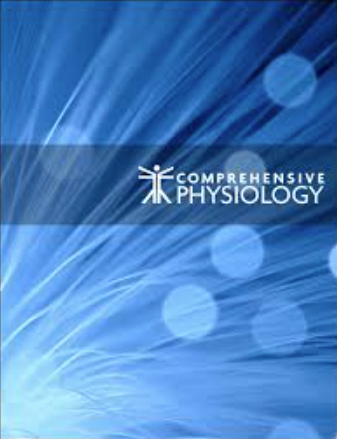求助PDF
{"title":"Aging and Bone Metabolism.","authors":"Robert J Pignolo","doi":"10.1002/cphy.c220012","DOIUrl":null,"url":null,"abstract":"<p><p>Changes in bone architecture and metabolism with aging increase the likelihood of osteoporosis and fracture. Age-onset osteoporosis is multifactorial, with contributory extrinsic and intrinsic factors including certain medical problems, specific prescription drugs, estrogen loss, secondary hyperparathyroidism, microenvironmental and cellular alterations in bone tissue, and mechanical unloading or immobilization. At the histological level, there are changes in trabecular and cortical bone as well as marrow cellularity, lineage switching of mesenchymal stem cells to an adipogenic fate, inadequate transduction of signals during skeletal loading, and predisposition toward senescent cell accumulation with production of a senescence-associated secretory phenotype. Cumulatively, these changes result in bone remodeling abnormalities that over time cause net bone loss typically seen in older adults. Age-related osteoporosis is a geriatric syndrome due to the multiple etiologies that converge upon the skeleton to produce the ultimate phenotypic changes that manifest as bone fragility. Bone tissue is dynamic but with tendencies toward poor osteoblastic bone formation and relative osteoclastic bone resorption with aging. Interactions with other aging physiologic systems, such as muscle, may also confer detrimental effects on the aging skeleton. Conversely, individuals who maintain their BMD experience a lower risk of fractures, disability, and mortality, suggesting that this phenotype may be a marker of successful aging. © 2023 American Physiological Society. Compr Physiol 13:4355-4386, 2023.</p>","PeriodicalId":10573,"journal":{"name":"Comprehensive Physiology","volume":"13 1","pages":"4355-4386"},"PeriodicalIF":5.2000,"publicationDate":"2023-01-30","publicationTypes":"Journal Article","fieldsOfStudy":null,"isOpenAccess":false,"openAccessPdf":"","citationCount":"0","resultStr":null,"platform":"Semanticscholar","paperid":null,"PeriodicalName":"Comprehensive Physiology","FirstCategoryId":"3","ListUrlMain":"https://doi.org/10.1002/cphy.c220012","RegionNum":2,"RegionCategory":"医学","ArticlePicture":[],"TitleCN":null,"AbstractTextCN":null,"PMCID":null,"EPubDate":"","PubModel":"","JCR":"Q1","JCRName":"PHYSIOLOGY","Score":null,"Total":0}
引用次数: 0
引用
批量引用
Abstract
Changes in bone architecture and metabolism with aging increase the likelihood of osteoporosis and fracture. Age-onset osteoporosis is multifactorial, with contributory extrinsic and intrinsic factors including certain medical problems, specific prescription drugs, estrogen loss, secondary hyperparathyroidism, microenvironmental and cellular alterations in bone tissue, and mechanical unloading or immobilization. At the histological level, there are changes in trabecular and cortical bone as well as marrow cellularity, lineage switching of mesenchymal stem cells to an adipogenic fate, inadequate transduction of signals during skeletal loading, and predisposition toward senescent cell accumulation with production of a senescence-associated secretory phenotype. Cumulatively, these changes result in bone remodeling abnormalities that over time cause net bone loss typically seen in older adults. Age-related osteoporosis is a geriatric syndrome due to the multiple etiologies that converge upon the skeleton to produce the ultimate phenotypic changes that manifest as bone fragility. Bone tissue is dynamic but with tendencies toward poor osteoblastic bone formation and relative osteoclastic bone resorption with aging. Interactions with other aging physiologic systems, such as muscle, may also confer detrimental effects on the aging skeleton. Conversely, individuals who maintain their BMD experience a lower risk of fractures, disability, and mortality, suggesting that this phenotype may be a marker of successful aging. © 2023 American Physiological Society. Compr Physiol 13:4355-4386, 2023.

 求助内容:
求助内容: 应助结果提醒方式:
应助结果提醒方式:


